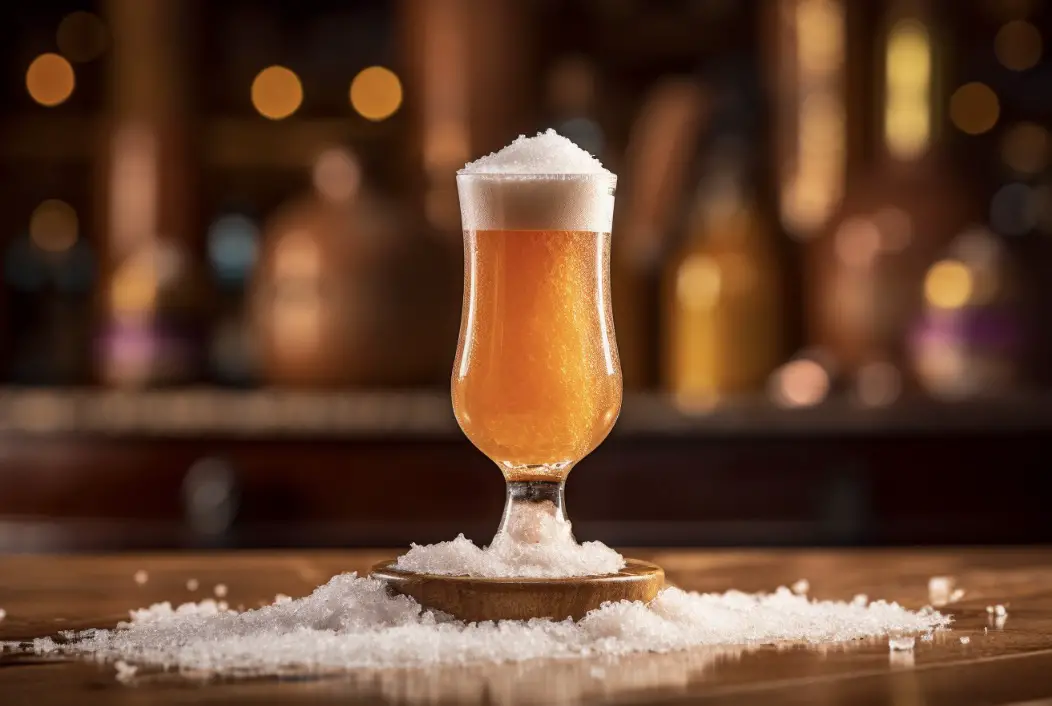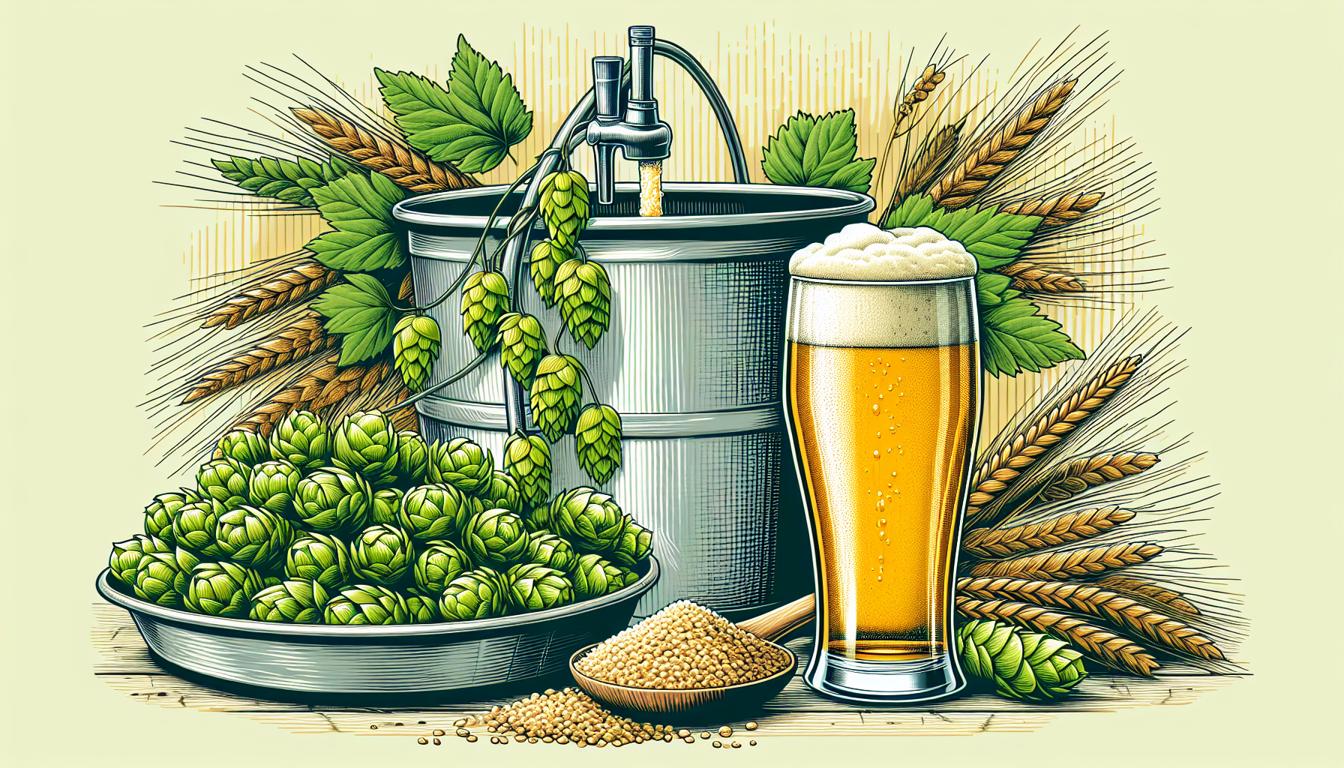Which beer has the least sodium? As a brewer and beer lover, I can tell you that it’s difficult to pinpoint a specific beer with the least sodium, as the amount of sodium in a beer can vary greatly depending on the brewing process and ingredients used.
Generally, beer does not contain much sodium unless it is a type of beer, such as the Gose sours, where salt is deliberately added.
However, when that is said, lighter beers generally contain the least sodium as the extraction of salt from the malt is less when the malt is lighter (less roasted).
I can give you some guidance on what types of beers typically contain lower sodium levels, as well as tips on how to reduce sodium intake while still enjoying a delicious brew.
In this blog post, we’ll discuss some low-sodium beer options, factors affecting sodium content in beer, and how sodium affects the taste of beer.
Lighter Beers and pilsners: Good Low-Sodium Option
When it comes to beers with lower sodium levels, light beers are generally a good choice. These beers have lower calorie and alcohol content, and often have reduced sodium levels as well.
And I don’t just mean the alcohol-light options, although these are typically also light in terms of malt extraction, but I mean the beers that are light in color and taste!
In fact, sometimes extra salt is added to alcohol light beers to enhance their taste. This is because the lower alcohol concentration will make the beer taste more “shallow” and watery, which a bit of salt, typically just from the high mineral water use, will improve.
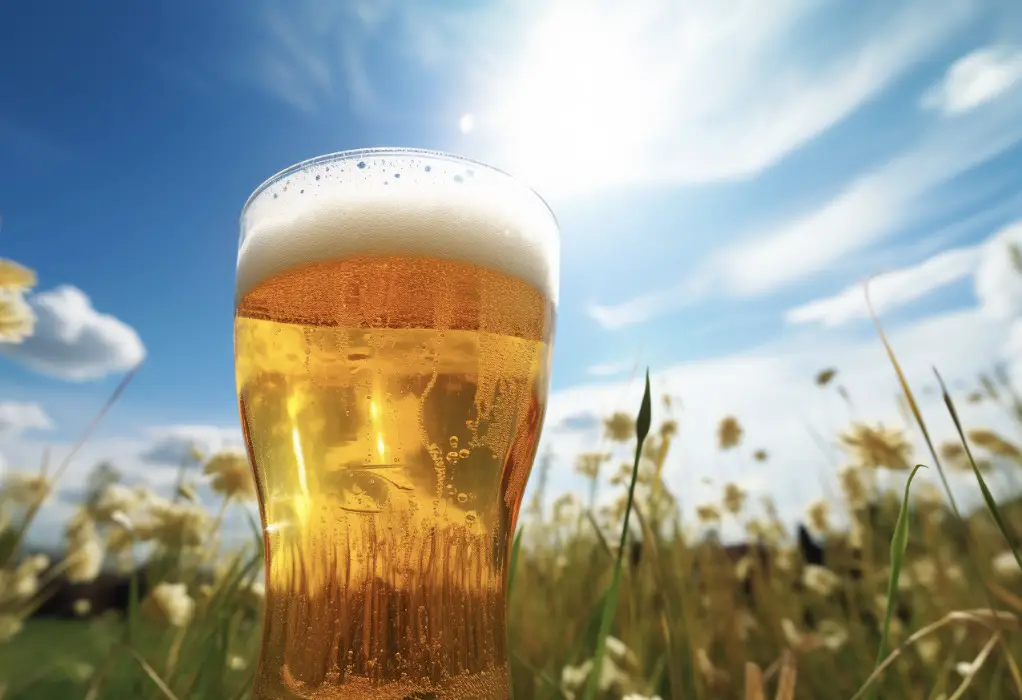
Some popular beer options that use lightly roasted malt include Budweiser, Heiniken, Carslberg and Sierra Nevada Pale Ale. While these beers may not be as flavorful as their full-bodied counterparts, they can still be enjoyable and help to reduce your overall sodium intake.
Low-Sodium Craft Beers
When looking for low-sodium beer options, consider including lagers and other light-colored beers in your choices.
These beers are also a great option for those seeking lower sodium levels, especially those made with spring or filtered water, as they tend to have naturally low salt content.
Light beers and pilsners, like Bud Light, Miller Lite, and Coors Light, offer a refreshing alternative with lower calorie and alcohol content compared to their full-bodied counterparts.
Embracing these light bodied beers can not only be enjoyable but can also contribute to reducing your overall sodium intake.
| Beer Brand/Type | Sodium Content (mg per 12oz) |
|---|---|
| Budweiser | 10 – 10.6 |
| Miller Lite | 16 |
| Coors Light | 18 |
| Heineken | 11 |
| Corona | 14 |
| Guinness Draught | 11 |
| Sierra Nevada Pale Ale | 6 |
| Gose | 140 – 560 |
| Corona Light | 10 |
| Sam Adams Lager | 13 |
| Heineken Light | 22 |
| Budweiser Select 55 | 1 |
So, the next time you’re searching for a low-sodium beer option, remember to consider these light and thirst-quenching brews.
Factors Affecting Sodium Content in Beer
There are several factors that can affect the sodium content of a beer, including the water used during brewing, the presence of additives, and the brewing process itself. Let’s take a closer look at these factors.
1. Water Quality and Sodium Content
One of the main factors affecting the sodium content in beer is the quality of the water used during the brewing process. Water naturally contains various minerals, including sodium, which can vary depending on the source.
Some breweries may use water with higher sodium levels, while others may use filtered or treated water to reduce sodium content. As a result, the sodium levels in beer can vary greatly depending on the brewery and the water source.
2. Additives and Sodium Content
Another factor that can affect the sodium content in beer is the presence of additives. Some breweries may add sodium-containing additives to their beers to enhance certain flavors or to improve the brewing process.
These additives can include salt, which is sometimes added to certain beer styles like Gose to create a distinctive saline flavor.
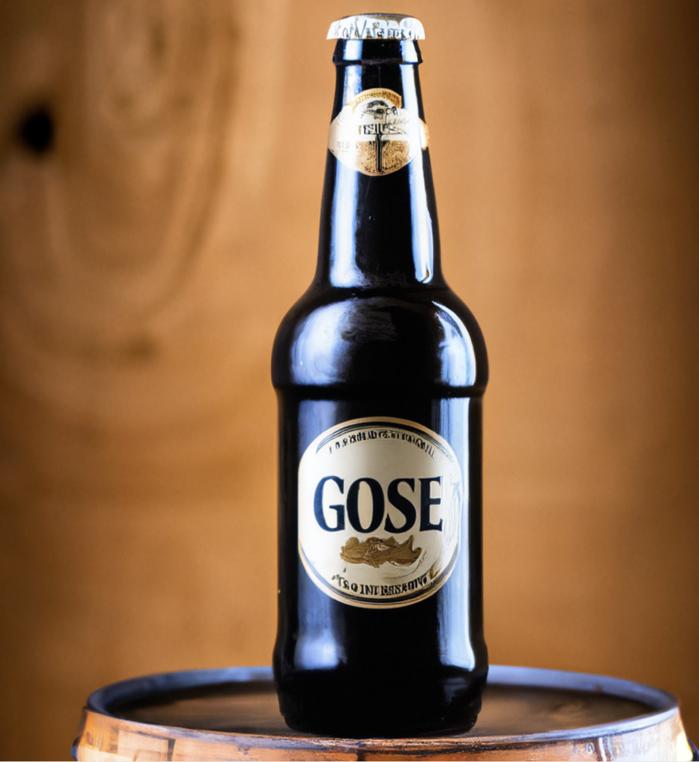
3. The Type of Malt
The malt type can influence the sodium content in beer in several ways:
- Sodium in Malt: Different types of malts can have varying levels of inherent sodium. The source and processing of the malt can impact its sodium content.
- Flavor and Recipe Adjustments: Certain malt types, especially those used in darker, more robust beers, might be paired with recipes that call for added sodium or salt to balance the flavor profile.
- Water Used in Brewing: The water used to brew the beer, which dissolves and interacts with the malt, can also affect the final sodium content. Water with higher natural sodium content or that has been treated with certain chemicals can increase the sodium levels in the beer.
- Malt Processing and Additives: The processing of malt (such as roasting) and any additives used during the malting process can contribute additional sodium to the final product.
While malt is a significant factor, it’s important to remember that other ingredients and the overall brewing process also play critical roles in determining the sodium content of beer.
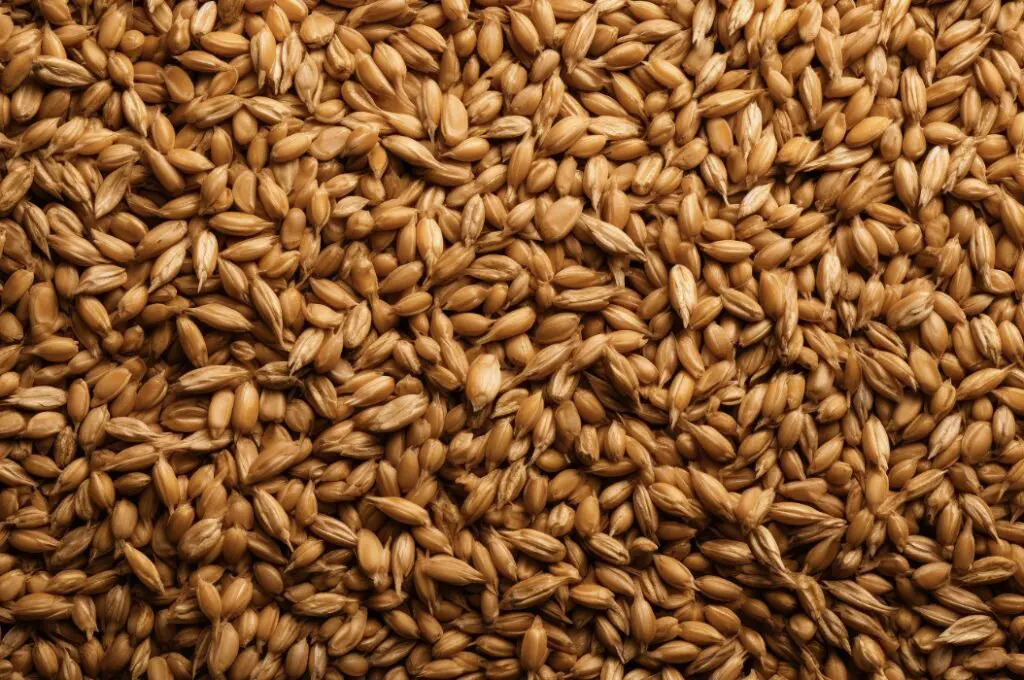
For specific information regarding how a particular malt type affects the sodium content in a specific beer, consulting with the brewery or examining detailed brewing records would be necessary.
4. Brewing Process and Sodium Content
Finally, the brewing process itself can also impact the amount of sodium in a beer. Some brewing techniques, such as using certain yeast strains or fermenting at specific temperatures, can cause the finished beer to have higher or lower sodium levels.
Sodium and Beer Flavor
Sodium’s Role in Enhancing Flavors: Sodium, when used in moderation, can accentuate certain flavors in beer. It can bring out the sweetness and maltiness, which are key characteristics in many beer styles. This enhancement is due to sodium’s ability to balance and highlight various flavor components.

Improving Mouthfeel and Body: Sodium also plays a role in the overall sensory experience of drinking beer. It can improve the mouthfeel, giving the beer a fuller, more rounded texture. This can be particularly desirable in styles that benefit from a richer body.
Negative Effects of Excessive Sodium: On the other hand, too much sodium can have detrimental effects on beer flavor. Beers with high sodium content may taste overly salty (duh?!), which can overpower other flavors and create an unbalanced profile. Additionally, high levels of sodium can impart a metallic taste, detracting from the overall enjoyment and quality of the beer.
Balance is Key: The key to using sodium effectively in brewing is balance. Brewers must carefully control the sodium content to ensure it enhances rather than detracts from the beer’s flavor profile. This can be achieved through careful selection of ingredients, water sources, and brewing processes.
In conclusion, while sodium can be a beneficial additive in brewing, contributing to flavor enhancement and improved mouthfeel, it requires careful management to avoid negative impacts on the taste and quality of the beer.
Reducing Sodium Intake While Enjoying Beer
If you’re looking to reduce your sodium intake while still enjoying your favorite brews, here are some tips:
1. Choose light beers or low-sodium craft options when possible.
2. Drink in moderation to limit the overall sodium intake from beer.
3. Alternate between beer and water to stay hydrated and dilute sodium levels in your body.
4. Look for beers with lower alcohol content, as these options often have lower sodium levels as well.
5. Avoid salty snacks while drinking beer, as these can greatly increase your overall sodium intake.
Conclusion
In conclusion, it’s difficult to pinpoint a specific beer with the least sodium, but opting for light beers or low-sodium craft options can help to reduce your overall sodium intake.
Remember that factors such as water quality, additives, and the brewing process can all affect the sodium content of a beer, and that sodium can have both positive and negative effects on beer flavor.
By following the tips provided in this post, you can enjoy your favorite brews while still keeping your sodium intake in check.
10 Facts About Sodium in Beer:
1. Sodium levels in beer can vary greatly depending on factors like water quality, additives, and the brewing process.
2. Light beers generally have lower sodium levels than their full-bodied counterparts.
3. Some craft beers may also have lower sodium levels, but finding consistent information can be difficult.
4. The water used during brewing can greatly impact sodium content in beer.
5. Additives, such as salt, can increase sodium levels in certain beer styles.
6. Different brewing processes can lead to higher or lower sodium levels in the finished beer.
7. Small amounts of sodium can enhance sweetness and maltiness in beer.
8. Excessive sodium levels can make beer taste overly salty or metallic.
9. Drinking in moderation and alternating between beer and water can help reduce overall sodium intake.
10. Avoiding salty snacks while drinking beer can also help minimize sodium intake.
FAQs
Can I drink beer on a low sodium diet?
Yes, you can drink beer on a low sodium diet, but it’s important to choose your beer wisely. Beer typically contains a small amount of sodium, but the sodium content can vary depending on the style and brand. Light beers generally have lower sodium levels compared to darker or more flavorful beers.
When selecting a beer for a low sodium diet, it is recommended to check the nutrition labels or contact the brewery for specific information on sodium content. Opt for beers labeled as “low sodium” or those with the lowest sodium levels per serving.
Additionally, it’s worth considering that excessive alcohol consumption can have negative health effects, especially for individuals with certain medical conditions. Therefore, it’s essential to consume beer in moderation and consult with a healthcare professional if you have any concerns or specific dietary restrictions.
Is there a lot of sodium in beer?
No, there is generally not a significant amount of sodium in beer. The sodium content in beer is typically very low, as it is primarily made up of water, malted barley, hops, and yeast. These ingredients do not naturally contain high levels of sodium.
However, it is important to note that the exact sodium content can vary depending on the specific brand and style of beer. Some flavored or specialty beers, particularly those with added ingredients like fruits or spices, may have slightly higher sodium levels due to the additional ingredients used in their production. Nonetheless, compared to other beverages and food products, beer is generally considered to have a low sodium content.
How much sodium is in a typical beer?
In general, beer is not a significant source of sodium. The sodium content in a typical beer is relatively low. On average, a regular 12-ounce (355 ml) serving of beer contains around 10-20 milligrams of sodium. However, it’s important to note that the exact sodium content can vary depending on the specific brand and style of beer.
Light beers and certain craft beers may have even lower sodium levels. If you have specific dietary restrictions or concerns about sodium intake, it is always advisable to check the nutrition label or contact the brewery for accurate information regarding sodium content in their beers.
Does beer affect blood pressure?
Yes, beer can affect blood pressure. Consuming alcohol, including beer, in moderate to high amounts can cause a temporary reduction in blood pressure. This is because alcohol acts as a vasodilator, meaning it relaxes and widens the blood vessels, leading to easier blood flow and a decrease in blood pressure.
However, excessive alcohol consumption can contribute to long-term high blood pressure due to its damaging effect on the blood vessels, which is a risk factor for various cardiovascular diseases. It is important to note that moderation is key, and excessive alcohol intake can have detrimental effects on blood pressure and overall health.
Does drinking too much alcohol lower your sodium?
Yes, drinking too much alcohol can lower your sodium levels. Alcohol is a diuretic, meaning it increases urine production and can lead to dehydration. When you consume alcohol excessively, it can disrupt the balance of electrolytes in your body, including sodium.
Sodium is an essential electrolyte that helps regulate fluid balance, nerve function, and muscle contractions. Excessive alcohol consumption can cause increased urine output, leading to the loss of sodium through urine. Additionally, alcohol can impair the release of an antidiuretic hormone called vasopressin, further exacerbating the loss of sodium.
Low sodium levels, known as hyponatremia, can cause symptoms such as nausea, headache, confusion, muscle cramps, seizures, and in severe cases, it can be life-threatening. It is important to maintain a balanced intake of sodium and stay hydrated by drinking water alongside alcoholic beverages to minimize the risk of sodium depletion.
Can you get hyponatremia from drinking too much beer?
Yes, it is possible to develop hyponatremia, also known as water intoxication, from drinking excessive amounts of beer. Hyponatremia occurs when there is an imbalance of electrolytes, particularly sodium, in the body. Beer, like any alcoholic beverage, has a diuretic effect, which can lead to increased urination. This can result in the loss of sodium and other electrolytes from the body.
However, hyponatremia from beer consumption is relatively rare and typically occurs in extreme cases of excessive drinking over a short period of time. It is more commonly associated with excessive water intake, particularly during prolonged physical activity or endurance events.
To prevent hyponatremia, it is important to consume alcohol in moderation and maintain a balanced diet that includes foods rich in electrolytes. Additionally, staying hydrated with water or non-alcoholic beverages can help mitigate the diuretic effects of alcohol.

